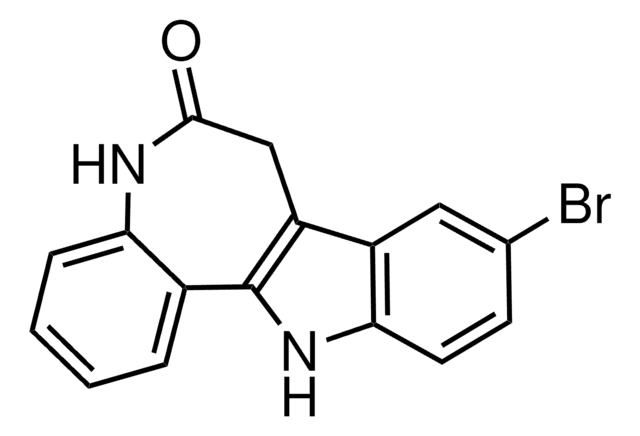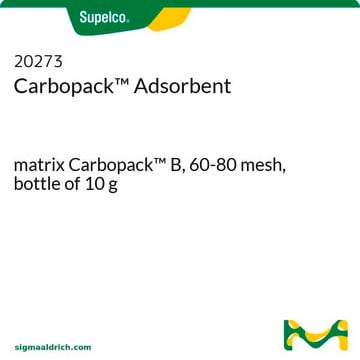S3567
SB 415286
≥98% (HPLC)
Synonym(e):
3-[(3-Chloro-4-hydroxyphenyl)amino]-4-(2-nitrophenyl)-1H-pyrrol-2,5-dione
About This Item
Empfohlene Produkte
Assay
≥98% (HPLC)
Farbe
yellow to orange
Löslichkeit
DMSO: 5 mg/mL, clear
H2O: insoluble
Ersteller
GlaxoSmithKline
Lagertemp.
−20°C
SMILES String
Oc1ccc(NC2=C(C(=O)NC2=O)c3ccccc3[N+]([O-])=O)cc1Cl
InChI
1S/C16H10ClN3O5/c17-10-7-8(5-6-12(10)21)18-14-13(15(22)19-16(14)23)9-3-1-2-4-11(9)20(24)25/h1-7,21H,(H2,18,19,22,23)
InChIKey
PQCXVIPXISBFPN-UHFFFAOYSA-N
Angaben zum Gen
human ... GSK3A(2931) , GSK3B(2932)
Anwendung
Biochem./physiol. Wirkung
Leistungsmerkmale und Vorteile
Rechtliche Hinweise
Lagerklassenschlüssel
11 - Combustible Solids
WGK
WGK 3
Flammpunkt (°F)
Not applicable
Flammpunkt (°C)
Not applicable
Persönliche Schutzausrüstung
dust mask type N95 (US), Eyeshields, Gloves
Analysenzertifikate (COA)
Suchen Sie nach Analysenzertifikate (COA), indem Sie die Lot-/Chargennummer des Produkts eingeben. Lot- und Chargennummern sind auf dem Produktetikett hinter den Wörtern ‘Lot’ oder ‘Batch’ (Lot oder Charge) zu finden.
Besitzen Sie dieses Produkt bereits?
In der Dokumentenbibliothek finden Sie die Dokumentation zu den Produkten, die Sie kürzlich erworben haben.
Kunden haben sich ebenfalls angesehen
Unser Team von Wissenschaftlern verfügt über Erfahrung in allen Forschungsbereichen einschließlich Life Science, Materialwissenschaften, chemischer Synthese, Chromatographie, Analytik und vielen mehr..
Setzen Sie sich mit dem technischen Dienst in Verbindung.














